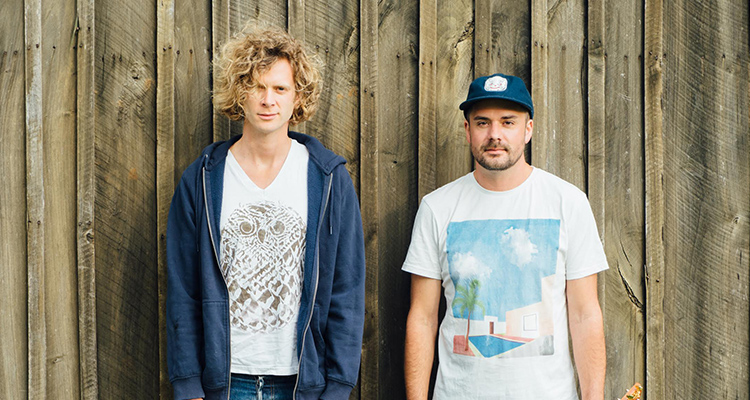Matt Hoopes: There’s actually an entire group of songs on our record that feel like an adventure to me. It feels like, not only a journey, but maybe it’s something that is bold, that’s pushing out of where we’ve been. Maybe it’s something that is important but kind of about our story, about what we’re going through. So even when I was grouping the songs together, there was one section that I said, “These are the adventure songs.” That’s the theme. One section was like, “These are our rock songs.” These are our important songs,” was one of them.
[All of] these songs felt like adventure to me, so that was a kind of weird theme that kept recurring. Even when we did photos for the record, we called this guy Josh, who is a friend of a friend. We knew that he knew where all the cool spots were. It just felt like this adventure. I feel like it added a visual with the music that was already there, and connected it together.
 CCM: As a band you are infamous for tongue-in-cheek. Yet sarcasm can be a bit caustic, or critical of others, yet you guys use it to point the finger at yourself first. To say, “OK, what’s going on with me?” before opining about everyone else.
CCM: As a band you are infamous for tongue-in-cheek. Yet sarcasm can be a bit caustic, or critical of others, yet you guys use it to point the finger at yourself first. To say, “OK, what’s going on with me?” before opining about everyone else.
MT: It’s not necessarily good to be preachy in songs. It’s not good to point the finger and say, “You ought to do this, and you ought to do that.” So a way to do that for yourself is to say, “You know, I could be better at this,” or “Man, I made a mistake.” And when a listener relates to the song, they identify with you. Then all of a sudden it becomes this unified sort of thing.
To do it with tongue-in-cheek…it’s fun to put a little wink in your music. It’s cool to do it in a way that can almost be taken seriously. As you say, there’s some truth and realness to it, and then, at the same time, there’s this playful, sunshine-y element to it, too, where hopefully the audience sees that we don’t take ourselves too seriously.
CCM: And I think this adds to your listener-love. It feels like they are very connected to you guys, and it feels like you’re very connected to them. I’m wondering if this is one way that you are taking care of your listeners. You’re saying, “Hey, we are the same.”
MT: Matt and I grew up being fans of all these bands. We’d go around to all the shows and meet these bands because they weren’t in this holier-than-thou hierarchy of fame. As a band, we want to be friends with all the kids that are watching the show. We’re all on the same playing field, and we all probably have things in common. It’s supposed to be about having a love between brothers and sisters. [To Hoopes] I don’t know—what do you think?
MH: I think we’ve always been able to connect, not only through our music, but through our personalities. The way we come across. The way we speak to people. I think that’s always been a part of who we are, but also the identity of our band. I feel like that’s a good thing. Life is too complex to come in and be negative and derogatory. You just never know what people are going through. These little glimmers of positivity are very important to us in music and something we’ve always tried to strive for.
CCM: You guys have had a really large faith-based constituency from early on, yet you also maintain significant mainstream access. How has this impacted how you create, how you relate to fans, to not necessarily be tied down to the parameters of the Christian music genre or church culture?
MT: There are benefits to both. Having ties to it, and not having ties to it. Having this—it’s not a gray area—but it’s an all-encompassing sort-of thing. Bands like Five Iron Frenzy, Sixpence None The Richer, and especially Switchfoot, taught us how to do it. How to just embrace the whole thing.
CLICK “3” TO ADVANCE


Leave a Reply
You must be logged in to post a comment.